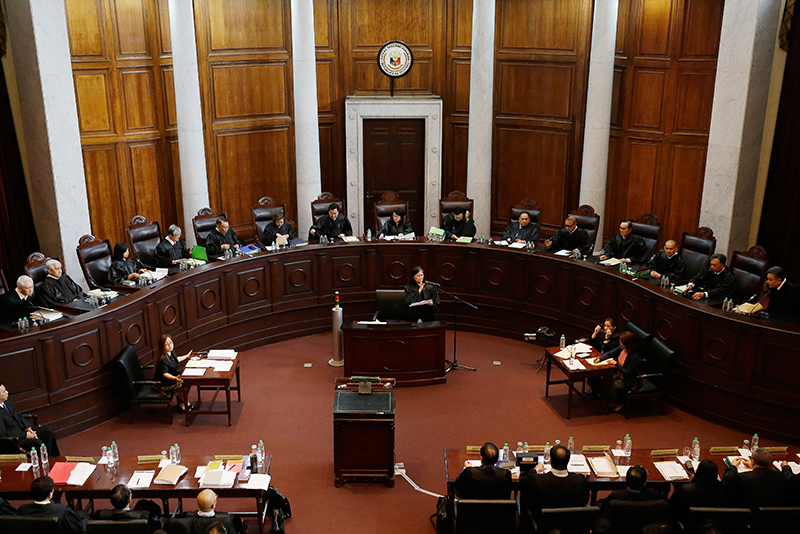Misleading the Court (Rule 10.01 of Canon 10)
Under Canon 10 of the Code of Professional Responsibility, lawyers owe candor, fairness, and good faith to the court. Particularly, Rule 10.01 provides that "[a] lawyer shall not do any falsehood, nor consent to the doing of any in Court; nor shall he mislead, or allow the Court to be misled by any artifice."
A lawyer is, first and foremost, an officer of the court. A lawyer's first duty is not to his client but to the administration of justice.[1]
A lawyer is, first and foremost, an officer of the court. A lawyer's first duty is not to his client but to the administration of justice.[1]

In the case of De Los Santos II v. Barbosa [2], the respondent deliberately misled the MeTC, the Commission and this Court into believing that Victor Canaco De Los Santos (Canaco's son whose birth certificate is at issue in the criminal case) and Victor P. De Los Santos (named in the Information) are different persons.
The Court agrees with the findings of the IBP Commissioner that the difference in the middle initial is a mere typographical error on the part of the City Prosecutor. The criminal case involved one and the same Victor Canaco de los Santos whose birth certificate has been at issue.
The Court agrees with the findings of the IBP Commissioner that the difference in the middle initial is a mere typographical error on the part of the City Prosecutor. The criminal case involved one and the same Victor Canaco de los Santos whose birth certificate has been at issue.
Members of the Bar are expected at all times to uphold the integrity and dignity of the legal profession and refrain from any act or omission, that might lessen the trust and confidence reposed by the public in the fidelity, honesty, and integrity of the legal profession.[3]
In Molina v. Magat,[4] the penalty of six months suspension from the practice of law was imposed against the lawyer who made false and untruthful statements in one of his pleadings. Here, the respondent committed breaches of ethical rules beyond what was committed in Molina; his defiance and willful disobedience to a lawful order of the MeTC and the act of misleading the MeTC, the Commission, and this [Supreme] Court as to the identity of his client constitute gross violation of his oath as a lawyer and of the Code of Professional Responsibility.
In Molina v. Magat,[4] the penalty of six months suspension from the practice of law was imposed against the lawyer who made false and untruthful statements in one of his pleadings. Here, the respondent committed breaches of ethical rules beyond what was committed in Molina; his defiance and willful disobedience to a lawful order of the MeTC and the act of misleading the MeTC, the Commission, and this [Supreme] Court as to the identity of his client constitute gross violation of his oath as a lawyer and of the Code of Professional Responsibility.
For clearly falling short of the standards set by the Code of Professional Responsibility, the Court finds that the appropriate penalty should be a suspension from the practice of law for a period of one (1) year as originally recommended by the Investigating Commissioner.
[1] Valencia v. Antiniw, A.C. Nos. 1302, 1391, 1543, June 30, 2008.
[2] A.C. No. 6681, June 17, 2015.
[3] Yupangco-Nakpil v. Uy, A.C. 9115, September 17, 2014. A.C. No. 1900, June 13, 2012.
[4] A.C. No. 1900, June 13, 2012.

0 Comments